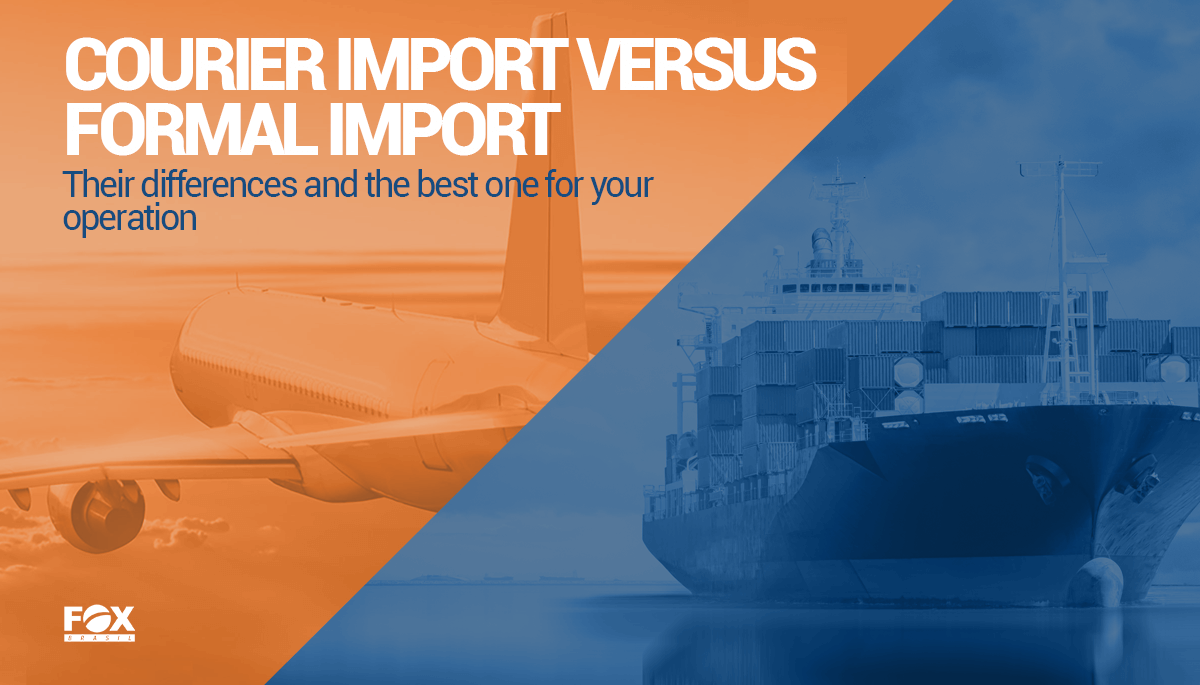Formal Import versus Courier Import: Which one is the best for your operation?

Understand Logistics & Freight
With its flexibility, the logistics sector offers multiple alternatives for companies and individuals who wish to move goods internationally based on the demands of their particular operations, and these alternatives are not limited to only being able to count on different vehicles: They are also extended to import modalities. In this post, we will cover two of the most common ways of importing goods and point you towards the one that will better fit your needs.
Formal Import
This is probably the modality that you, even unknowingly, are more familiar with.
Formal Imports cover all of the high-volume shipments that are destined to be distributed, commercialized, used in productions, and much more. These include products of all natures, and shipments of all sizes and quantities, with few limitations regarding “what-and-how-many” for the importer, as long as all is in accordance with the regulations imposed by the countries involved in the operation. Due to that, formal imports are bureaucratic, requiring more detailed documentation and going through an extended customs clearance process.
One of the most important characteristics of this modality, however, is that formal imports can only be made by legal persons and companies that are recognized as such by the government.
Here, in Brazil, organizations are only allowed to make formal imports if they are qualified by the SISCOMEX Radar system. If a company is not yet registered in this system, they can count with the help of a freight forwarder to regularize their situation.
Courier Import
Also known as Express shipping, courier import is an alternative for those who seek to import fewer, smaller products in the fastest and most practical possible way utilizing air freight.
Courier shipments involve less bureaucracy, since they are granted a simplified customs clearance process. However, one of the aspects that make this simplified process possible is that there are many rules regarding the value of the products being moved, as well as their weight and the purpose of the importation.
As much as courier imports, different from formal imports, can be done by both legal and natural persons, the latter can only import via courier if they do not intend on commercializing the products being brought. In addition to this rule, there are others that need to be followed by all who seek to import via courier, such as not exceeding the total import value of USD 3.000 and fitting the criteria of eligible products that are allowed to be imported by this modality.
Which one is best?
Both options have their respective advantages and limitations so, when trying to decide which one is the most suitable for your demand, you must at first take into account what exactly you are importing.
Since courier import is only possible for a select number of products as well as has a settled value for the shipment, it can be easily crossed out in case your shipment doesn’t fit the criteria. But don’t take this the wrong way! Courier import can still be an extremely advantageous option for smaller operations that would end up taking unnecessary time, money and bureaucracy if they were to be imported formally.
In a nutshell, what settles which one is best is simply the shipment itself: What it is, its value, and, of course, the purpose it will serve after it reaches its destination.
If your shipment could be eligible for both modalities and you’re still unsure of which one to choose, try hiring the services of a freight forwarder! They are the best professionals in the logistics field to point you towards the ideal solution for all of your demands.